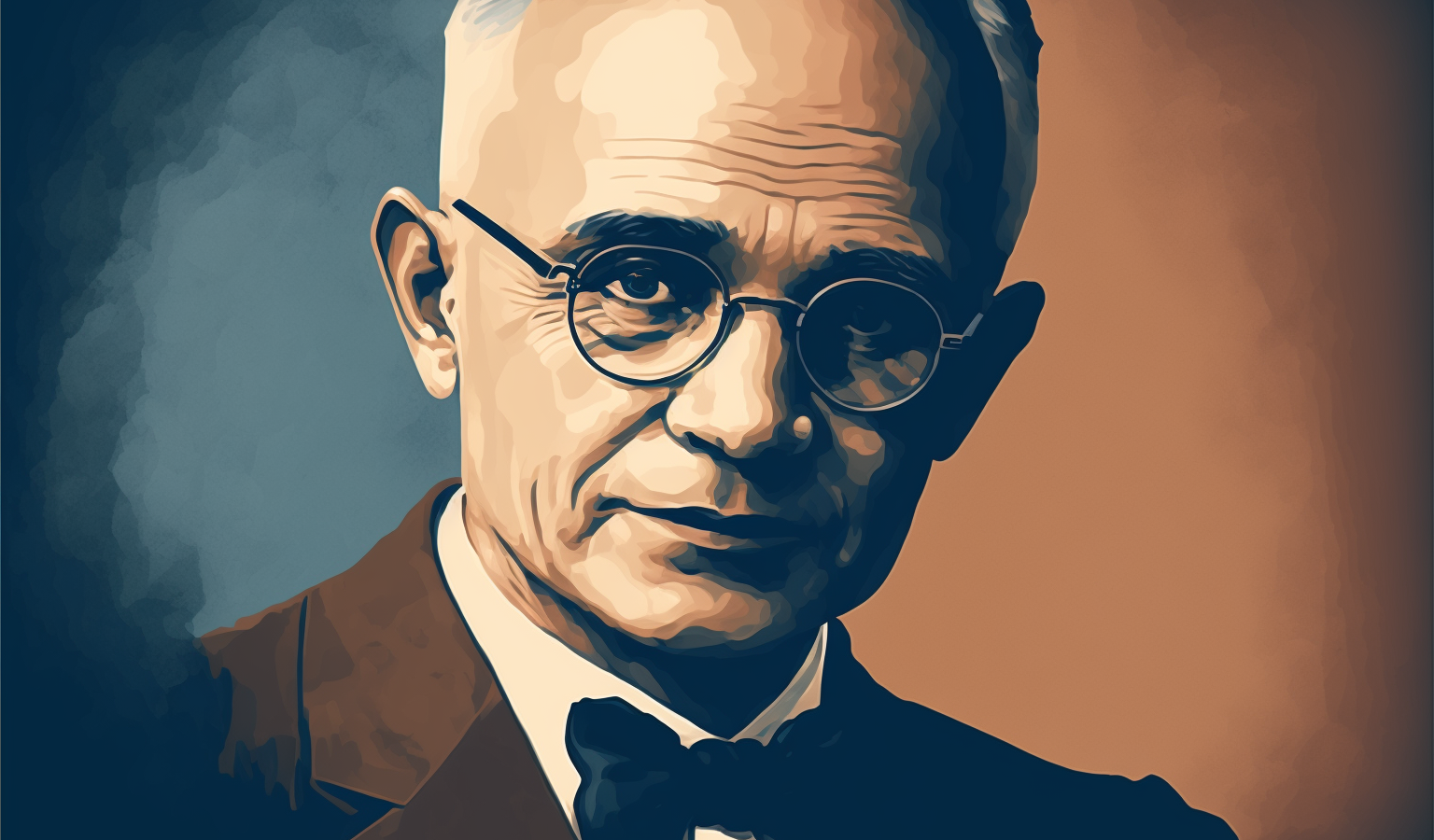In the world of personal achievement, where dreams take root, there exists an age-old doctrine, one that transcends the grandiloquence of mere contemplation. This doctrine is infused with the wisdom of brilliant minds, a philosophy that, once integrated into the tapestry of one’s existence, has the power to reshape lives. Today, we embark on a voyage that channels the spirit of Napoleon Hill, delving into the profundity of thinking grand yet commencing with modest steps.
For great things do not done just happen by impulse but are a succession of small things linked together.
Vincent Van Gogh
In a world captivated by immediate rewards and breakneck progress, the vast majority find themselves ensnared in a web of apprehension and restiveness. The modern era, with its frenetic tempo and ceaseless comparisons, frequently leads individuals to defer the commencement of their journey toward their loftiest dreams. They become intoxicated by the allure of the final destination, seduced by the promise of instant success, and subsequently daunted by the long and arduous path that stretches before them. It is at this juncture that we must seek solace in the wisdom of starting small.
Napoleon Hill’s Timeless Philosophy
Napoleon Hill, the harbinger of success and personal achievement, once pronounced, “Whatever the mind can conceive and believe, it can achieve.” His words resonate with the essence of thinking big, the power of imagination and conviction in the pursuit of grand objectives. To conceive and believe is to foster a vision, to dream audaciously, and to establish towering goals. However, Hill’s wisdom extends beyond mere ideation. His philosophy, rooted in the soil of pragmatism, accentuates the importance of taking that inaugural stride, regardless of its apparent modesty.
Dale Carnegie’s Narrative
Ponder upon the emergence of a timeless classic, ‘How to Win Friends and Influence People,’ a literary work that traverses generations, impacting countless lives. Now, visualize its conception, a modest commencement often obscured by its grandeur. Dale Carnegie, the author of this monumental creation, did not awaken one morning with a finished magnum opus in hand. His journey was launched with a brief talk, a seed of an idea that grew into an hour-and-a-half-long discourse. Carnegie did not dive headlong into the realm of crafting a bestseller. He took that pivotal first step. His talks resonated with his audience and kindled a spark of interest.
This spark evolved into the embers of a legendary book. Small beginnings were the bricks that constructed the foundation for colossal impact.
The Fundamental Principles of Starting Small
Why does the concept of starting small wield such transformative influence? Let us unravel the five fundamental principles that underpin its wisdom:
1. Less Time, More Action
It is an elementary truth that small actions require less time and energy. When initiating a voyage of weight loss, for instance, would one embark upon a strenuous three-hour daily workout, or instead commence with a manageable one-hour routine three days a week? The latter may appear less formidable, yet it is sustainable. When an undertaking demands minimal time and energy, resistance dwindles, and consistency becomes an attainable objective.
2. Overcoming Overwhelm
The grandeur of lofty objectives often engenders feelings of overwhelm. Reflect upon writing a 300-page book within the confines of a week – an enticing idea, no doubt, but one likely to stifle advancement with its massive scale. However, a modest inception alleviates this burden, clearing the path for gradual progression. The quest to conquer seemingly insurmountable objectives is frequently thwarted because individuals set themselves up for failure. They are, in essence, overestimating their capacity.
3. Confidence and Momentum
Beyond eradicating the paralysis induced by overwhelming prospects, starting small imparts a surge of confidence and momentum. Tony Robbins, a luminary in the realm of success, once expounded, “People who succeed have momentum. The more they succeed, the more they want to succeed, and the more they find a way to succeed.”
As small victories accumulate, an individual’s sense of accomplishment flourishes. They feel invigorated and emboldened, fostering a desire to undertake more substantial actions. Success unfurls as a continuous cycle. Starting small precipitates a series of triumphs that propel an individual forward, culminating in the creation of even more victories.
4. Lower Stakes and Immediate Feedback
The concept of a ‘Minimum Viable Product’ (MVP), as advocated by Eric Ries, author of ‘Lean Startup,’ is a testament to the power of modest beginnings. It encourages the creation of a product with the minimal features needed to gratify early adopters and garner feedback for future development.
In the realm of launching a business or embarking on a project, uncertainty often shrouds the success of one’s vision. Thus, an MVP is constructed as a pragmatic approach. It diminishes the risk associated with large-scale investments and expedites the process of discerning whether the foundational idea possesses viability.
The tale of authors such as Laura Vanderkam, whose book ‘What the Most Successful People Do Before Breakfast‘ originated as a mere article, and Amy Morin, whose ’13 Things Mentally Strong People Don’t Do’ garnered a readership of over 30 million individuals, serves as testament to the transformative potential of commencing with a smaller vision.
5. The First Step
Amazon, the trillion-dollar titan of e-commerce, was not birthed as the “everything store.” The seeds of its inception began in the world of online book retail. Jeff Bezos, the luminary behind Amazon’s ascent, nurtured a vision of a comprehensive marketplace but recognized that greatness necessitated small beginnings. Hence, he initiated the venture by selling books online.
Starting small is not merely a philosophical aphorism; it is the first step in the journey toward greatness. As Lao Tzu once declared, “The journey of a thousand miles begins with one step.” Therefore, starting small emerges as the first step in this odyssey, an initial action to initiate progress.
Thinking Big and Starting Small
So, after journeying through these insights, one may ponder the relationship between thinking big and starting small. It is vital to remember that thinking big remains an absolute imperative.
Thinking big motivates, instills a sense of purpose, and provides the foundation upon which colossal dreams are constructed. Yet, when it comes to implementation and commencing one’s pursuit, the philosophy of starting small becomes a harbinger of progress.
In the grand tapestry of life, one does not necessarily require every endeavor to originate with modest beginnings. The suitability of starting small or thinking big hinges on the character of the project or task at hand. Lengthy and sustainable undertakings, those necessitating long-term commitment, beckon the wisdom of starting small. To engender a habit, to render it sustainable, and to induce regularity, it is imperative to take the inaugural steps with moderation.
Dripping water hollows out the stone, not through force but through persistence.
Lao Tzu
On the contrary, projects of fleeting nature or singular tasks may demand a grander commencement. Some are inspired by the likes of authors who have undertaken Herculean efforts, writing books within the confines of a few days, locked within the solitude of a hotel room. Such instances require the mettle to begin big.
Napoleon Hill’s philosophy resonates with the essence of thinking big and starting small. The power of modest commencement paves the path toward grandeur, casting aside the shackles of procrastination and apprehension. In this era of competitive strides, it is imperative to recognize that it is not solely the grandeur of the dream that matters, but the tenacity of the first step.
The journey is composed of countless tiny strides. Each small beginning, sustained over time, forges the passage toward magnificent achievements. In the words of Lao Tzu, “Dripping water hollows out the stone, not through force but through persistence.” The power of starting small should never be underestimated, for it is through these small actions, sustained over time, that significant accomplishments unfurl.
In a world captivated by the allure of grandeur, may you find solace in the knowledge that commencing with modest beginnings is not merely a philosophy but a blueprint for success. Dream audaciously, commence humbly, act resolutely, and in the embrace of persistence, may you birth greatness. It is, indeed, the most profound testament to the wisdom of starting small.
As you embark on your journey to greatness, remember the wisdom of starting small. Just like the first dancer who fearlessly takes the floor, your first step, no matter how small, can lead to a movement of transformation. It’s a concept explored in my book, ‘The First Dancer: How to be the first among equals and attract unlimited opportunities.’ So, dream audaciously, commence humbly, and dance your way into a future of unlimited possibilities.”


